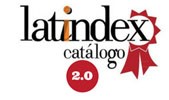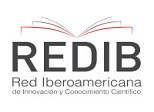Psychosocial Risk Prevention Strategies in University Teachers and Administrative Staff: Participatory Methodology
DOI:
https://doi.org/10.69890/hallazgos21.v6i3.539Keywords:
strategies;, prevention;, psychosocial risks;, staff;, administrative staff.Abstract
The objective of this study was to define strategies for the prevention, promotion, and intervention of psychosocial risks applicable to university teachers and administrative staff, through a participatory methodology. The study followed a qualitative design by applying an instrument for the participatory formulation of an intervention plan for psychosocial risk factors. The participants were 171 people, distributed in 115 teachers of higher education level and 56 administrative workers. The technique used was a questionnaire constructed by the author from the "General Technical Guide for the Promotion, Prevention and Intervention of Psychosocial Factors and their Effects on the Working Population" of the Ministry of Labor of Colombia, developed by experts from the Javeriana University of Bogotá. The questionnaire has 13 questions that identify the health intervention actions and the psychosocial risk factor intervention actions proposed by the participants. The results indicate that health promotion activities focus on the promotion or healthy lifestyles (23.5%), the suggested actions on health effects are oriented towards primary prevention, mainly the first aid techniques in view of situations of anxiety (59%) and regarding the actions on health effects at the level of secondary prevention focused on knowing crisis care techniques and psychological first aid (37.4%). It is concluded that the strategies established in the promotion of health are necessary to implement and promote healthy lifestyles within the working day, to improve the productivity and health of the working population.
References
Anchundia Espinoza, J.M. (2020). Programa de Posgrados En Riesgos Laborales. Esmeraldas: Pontificia Univeridad Católica del Ecuador, Sede Esmeraldas.
Bernal Reina, K. D., Buitrago Urbina, L. M., Monsalve Cristancho,I.C., Ortiz Roncancio, C.A.,Utrera Reyes, C.H., & Valenzuela Estupiñan, A.M. (2021). Caracterización de Los Factores de Riesgo Psicosocial Del Personal Administrativo y Docente de La Sede UVD de La Uniminuto. Corporación Universitaria Minuto de Dios. Bogotá, Colombia. https://hdl.handle.net/10656/12489
Daza Ramírez, D., Plaza,M.T., & Hernandez, H.E. (2017). Factores de Riesgo Intralaboral Asociados Al Clima Organizacional y Su Efecto Sobre El Síndrome de Boreout En El Sector Salud. Revista Espacios 38(58). http://www.revistaespacios.com/a17v38n58/17385803.html
Flores-Barocio, Á., Guadalupe,M., Pando-Moreno,M., And León-Cortés, .G. (2011). Factores Psicosociales y Sintomatología Psicológica En Académicos de Enseñanza Media Superior de Una Universidad Pública de Guadalajara. https://www.cucs.udg.mx/revistas/edu_desarrollo/anteriores/20/020_Flores.pdf
Instituto de Salud Pública de Chile. (2021). Guía Para Implementar La Ergonomía Participativa En Los Lugares de Trabajo. https://www.ispch.cl/wp-content/uploads/2021/02/Gu%C3%ADa-T%C3%A9cnica-Ergonom%C3%ADa-Participativa-v0.pdf
Luceño, L., Martín, J.,Rubio, S., & Jaén, M. (2008). Psicología y Riesgos Laborales Emergentes: Los Riesgos Psicosociales. Universidad Camilo José Cela. http://hdl.handle.net/20.500.12020/163
Ministerio del Trabajo. (2017). Normativa de Erradicacion de La Discriminacion En El Ámbito Laboral. Quito- Ecuador- Acuerdo Ministerial 0082-2017. https://www.trabajo.gob.ec/wp-content/uploads/2012/10/am-82.-normativa-erradicacion-de-la-discriminacion-en-el-ambito-laboral.pdf?x42051
Ministerio del Trabajo.(2018). Guía Para La Aplicación Del Cuestionario de Evaluación de Riesgo Psicosocial. Dirección De Seguridad, Salud En El Trabajo Y Gestión Integral De Riesgos https://www.trabajo.gob.ec/seguridad-y-salud-en-el-trabajo/
Ministerio del Trabajo Colombia. (2015). Promoción, Prevención e Intervención de Los Factores Psicosociales y Sus Efectos En Población Trabajadora. Bogotá: JAVEGRAF.
Neffa, J. C. (2015). Los Riesgos Psicosociales En El Trabajo: Contribución a Su Estudio. Buenos Aires, Argentina:CEIL- CONICET. http://www.ceil-conicet.gov.ar/wp-content/uploads/2015/11/Neffa-Riesgos-psicosociales-trabajo.pdf
Osorio Vigil, A. (2017). Primeros Auxilios Psicológicos. Integración Académica En Psicología. 5 (15). https://integracion-academica.org/attachments/article/173/01%20Primeros%20Auxilios%20Psicologicos%20-%20AOsorio.pdf
Peiró, J. M. (2004). El Sistema de Trabajo y Sus Implicaciones Para La Prevención de Los Riesgos Psicosociales En El Trabajo. Universitas Psychologica 3(2):179–86. Univ. Psychol. Bogotá (Colombia) 3 (2): 179-186. https://www.intersindical.com/page/contenido/Estudios%20e%20Historia/Sistema_trabajo%20y%20prevencion%20de%20riesgos.pdf
Ramírez Rojas, N. A.(2019). Diseño de Un Plan de Prevención de Riesgos Psicosociales Dirigido a Las y Los Funcionarios de La Vicerrectoría de Administración Del Instituto Tecnológico de Costa Rica. Repositorio Institucional de la Universidad de Costa Rica. http://hdl.handle.net/10669/79154
Unda, S., Uribe, F., Jurado, S., García, M., Tovalín, H., & Juárez, A.(2016). Elaboración de Una Escala Para Valorar Los Factores de Riesgo Psicosocial En El Trabajo de Profesores Universitarios. Revista de Psicología Del Trabajo y de Las Organizaciones 32(2):67–74.
De Vicente, A., & Villamarín, S. (2013).La OMS Insta a La Creación de Ambientes de Trabajo Saludables. Infocop 62(3). http://www.infocop.es/view_article.asp?id=4696
Published
How to Cite
Issue
Section
License
Los artículos enviados a la Revista Científica Hallazgos21 deberán ser totalmente originales e inéditos.
Los autores son los responsables de los textos y las imágenes incluidas en los artículos y no necesariamente reflejan el pensamiento de la editorial o de la Pontificia Universidad Católica del Ecuador, Sede Esmeraldas (PUCESE).
Los autores disponen cederle a la Revista Científica Hallazgos21 todos los derechos inherentes para la edición, publicación y distribución o divulgación del mismo.
Se autoriza a las revistas firmantes de los acuerdos de Encuentros de Revistas Latinoamericanas para reproducir en parte o totalmente los artículos con la sola mención de la fuente claramente señalada.







